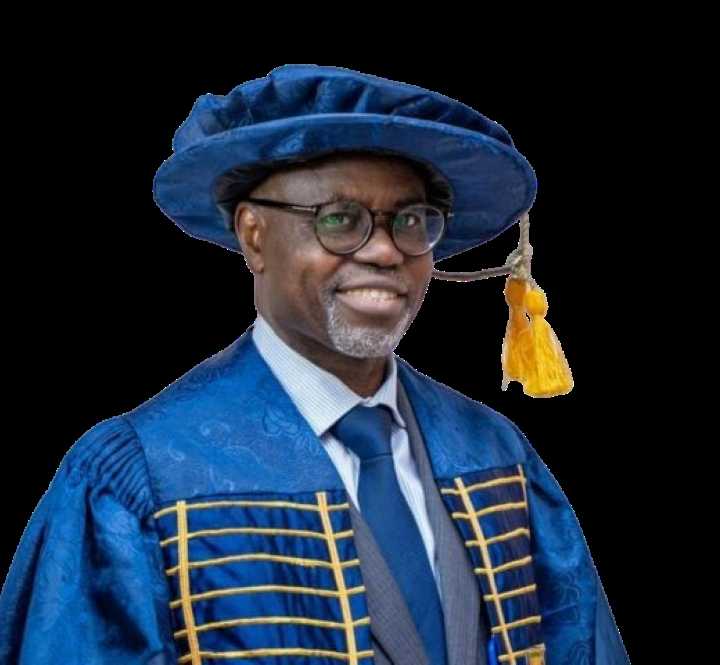 Nnaeme Ukabiala, a Nigerian US-based neuroscientist, is dedicated to innovating solutions for chronic diseases worldwide and advocating for research prioritization. In a recent discussion, he highlighted the disparities in biomedical research infrastructure between Nigeria and the U.S., emphasizing the need for increased funding, improved infrastructure, and more innovation opportunities in Nigeria.
Nnaeme Ukabiala, a Nigerian US-based neuroscientist, is dedicated to innovating solutions for chronic diseases worldwide and advocating for research prioritization. In a recent discussion, he highlighted the disparities in biomedical research infrastructure between Nigeria and the U.S., emphasizing the need for increased funding, improved infrastructure, and more innovation opportunities in Nigeria.
Ukabiala is particularly passionate about genetic and genomic diseases, focusing his research on DNA and RNA biology. He believes that understanding and manipulating genetic systems can lead to cures for various illnesses. His work involves studying DNA and RNA mechanisms in model organisms, contributing to advancements in therapeutic tools like RNA interference (RNAi) and CRISPR.
“Every area of research holds a significant importance, I find that investigating DNA and RNA mechanisms in model organisms is crucial,” says the neuroscientist, pointing out that this area of research hones his understanding and contributes to the development of innovative tools.
Although born and raised in Nigeria for the early part of his life, Ukabiala migrated to the US, where he gained a Bachelor of Science degree in Neuroscience from Baylor University, Texas, in August 2019. He didn’t stop there. He forged ahead to earn a Master of Science in Integrative Neuroscience from Georgetown University in Washington, DC, in June 2020.
Having lived and studied in the US in his adult life, Ukabiala has a say or two about how he perceives the differences in biomedical science research and practice between Nigeria and the US, particularly in terms of funding, infrastructure, and opportunities for innovation.
The differences in biomedical science research and practice between Nigeria and the United States are significant, particularly in terms of funding, infrastructure, and opportunities for innovation. “Nigerian biomedical research infrastructure is almost nonexistent,” he admitted sadly. “We do not have robust agencies or institutions that can stand toe-to-toe in terms of expertise and equipment with individual labs, much less an entire institution here in the US.”
He highlighted institutions like the National Institutes of Health (NIH) and private industries in the US that provide substantial funding for biomedical research, which supports diverse and cutting-edge projects. “In contrast, Nigeria’s funding is limited, with initiatives like TETFund providing insufficient resources for extensive research.”
Commending the US for her advanced research facilities equipped with state-of-the-art technology that enables high-quality scientific output, Ukabiala suggested some proactive approach to help Nigeria attain a feat in the biomedical field. “It’s sad that Nigeria struggles with inadequate infrastructure, including unreliable power supply and outdated equipment that hinder research capabilities.
In comparison, he outlined that the U.S. environment fosters innovation through robust support systems and collaborations between academia and industry. In Nigeria, innovation is stifled by systemic issues such as corruption and a lack of public understanding of biomedical science’s importance. “Despite these challenges, Nigerian researchers show potential by contributing to global health issues when given adequate support,” says the US-based Neuroscientist.
In his suggestions, Ukabiala endorsed the need for enhanced education and training. He is confident that if the nation expands biomedical engineering and laboratory science programs in universities, it will improve manpower development.
“It’s time to establish dedicated research centers for biomedical engineering to foster innovation and practical skills; allocate more financial resources to healthcare and education sectors to support infrastructure and technology upgrades,” he shared more nuggets.
For the neuroscientist, Nigeria should implement continuous professional development courses for biomedical scientists and engineers and also facilitate international collaborations for knowledge exchange and training opportunities.
Equally of importance, Ukabiala insisted on how developing coherent policy frameworks would guide biomedical practices and ensure ethical standards.
With over a decade of experience in the biomedical field, Ukabiala embodies key insights to help Nigerian biomedical practitioners enhance their research and practice. “Adapt to the environment while pushing for change. We need those in high places to support and champion the cause of Biomedical science.
“Scientists need to learn to perform high-level science even under these harsh conditions. This may mean only planning to do experiments that are possible in the spartan Nigerian context.”
He firmly suggested that a shift focusing on bioinformatics and dry lab work could be highly beneficial for Nigerian biochemical scientists. By concentrating on computational analyses, researchers can leverage data generated by international counterparts, which is readily available online. “We already have a booming IT sector, this is a home run for the Nigerian youth,” emphasizing that Americans now base whole biomedical science PhDs on computational analyses alone. “Many of my friends over here will earn PhDs without ever stepping in a lab.”
“Focus on Bioinformatics!” Those words echoed the conversation about strategies for advancing biomedical science in Nigeria, especially focusing on nurturing the next generation of scientists and researchers. “The youth need to start learning Next Generation sequencing analysis of all kinds,” adding that Computational Structural analyses of proteins and machine learning for statistical analysis. Sequencing analysis to determine genetic motifs. Start here. Use all the data the Americans have already generated to your advantage; “it is free,” he reminded Nigerians.
The neuroscientist frowned at the thought that a biochemistry degree would be looked down upon, saying, “Those days never existed in the West.”To foster Nobel prize-winning biomedical scientists, physicists, chemists, and engineers, Ukabiala strongly recommended that Nigeria must encourage the pursuit of science outside of Medicine.
Ultimately, Ukabiala emphasized the importance of advancing biomedical studies, particularly encouraging young people to “start reading early and memorizing biochemical structures while studying your periodic table in junior secondary school 3 (JSS 3). The earlier, the better.” His commitment to developing solutions for chronic diseases globally, beginning in the US and his home country, exemplifies the power of pursuing one’s vision and remaining dedicated to the journey.






